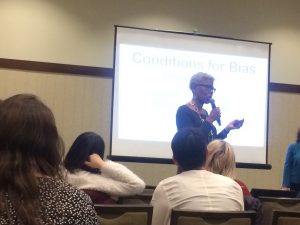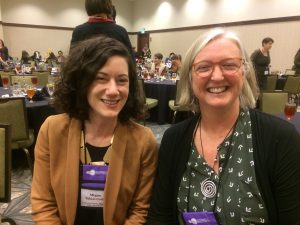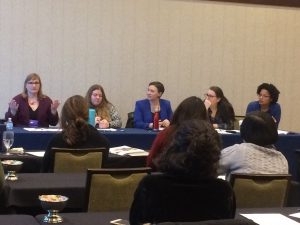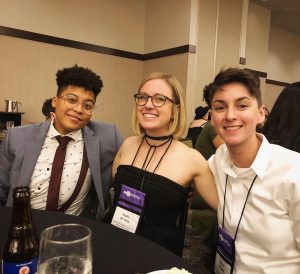Three distinguished scholars from outside the University of Austin are visiting the sociology department this semester as part of a graduate-student organized speaker series called “Critical Criminology: Feminist Approaches to Crime, Law, and Deviance.” This series showcases professors who use ethnographic methods to study aspects of the criminal-legal system, an area more commonly explored through quantitative datasets and methodologies.
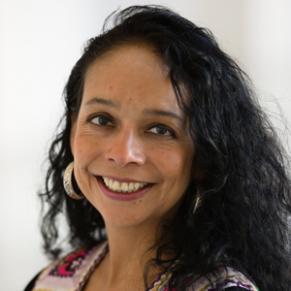 Guadalupe Correa-Cabrera, Jan. 30-31
Guadalupe Correa-Cabrera, Jan. 30-31
Guadalupe Correa-Cabrera is Associate Professor at the Schar School of Policy and Government at George Mason University and President of the Association for Borderlands Studies (ABS). She studies Mexico-U.S. relations, organized crime, immigration, border security, and human trafficking. Her books include Los Zetas Inc.: Criminal Corporations,Energy, and Civil War in Mexico (2017) and Democracy in“Two Mexicos”: Political Institutions in Oaxaca and Nuevo León (2013). She currently analyzes Mexican immigration in the United States for a project called Mexican “Illegal” Immigration in the U.S.: A Human Problem.
Cecilia Menj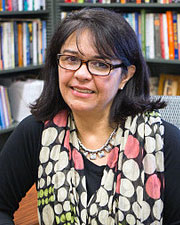 ívar, Feb. 27-March 1
ívar, Feb. 27-March 1
Cecilia Menjívar is Professor and Dorothy L. Meier Social Equities Chair in the Department of Sociology at UCLA. Her work has made substantial contributions to Latin American Studies, particularly within the fields of immigration, family, gender, and violence. She has authored and co-authored a number of books, including Immigrant Families (2016), Enduring Violence: Ladina Women’s Lives in Guatemala (2011), and Fragmented Ties: Salvadoran Immigrant Networks in America, and was recently honored with the 2017 Feminist Criminology Best Article Award.
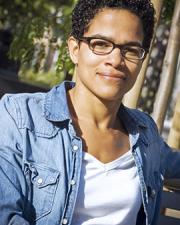 Nikki Jones, March 25-27
Nikki Jones, March 25-27
Nikki Jones is Associate Professor in the Department of African American Studies at the University of California, Berkeley. Her research focuses on the experiences of African American men, women, and youth with the criminal justice system, policing, and violence. She is author of The Chosen Ones: Black Men and the Politics of Redemption (2018) and Between Good and Ghetto: African American Girls and Inner City Violence (2010), and winner of the William T. Grant Award for Early Career Scholars, as well as the New Scholar Award from the American Society of Criminology’s Division on Women and Crime and Division on People of Color and Crime.
In addition to presenting research findings, each scholar is hosting a workshop session with graduate students on the use of feminist and ethnographic methods to study crime, law, and deviance. These workshops cover processes such as conceptualizing research questions; gathering and organizing data; conducting data analysis; using critical race and/or feminist frameworks to guide the research process; and disseminating findings to a broader public in service of promoting social change.
The series is part of an ongoing student-led initiative in the Ethnography Lab called “Ethnographic Approaches,” a series established with the support of the university’s Academic Enrichment Fund. This series helps sustain the Lab’s momentum by regularly bringing ethnographers from other institutions to campus, including, recently, Kimberly K. Hoang (Chicago), Gianpaolo Baiocchi (NYU), and Silvia Pasquetti (Newcastle).
The “Critical Criminology” speaker series is organized by UT Austin sociology PhD candidates Shannon Malone Gonzalez and Katie Kaufman Rogers. It is hosted by the Urban Ethnography Lab and generously supported by LLILAS, the Academic Enrichment Fund, and the Sociology Department’s Fem(me) Sem and Crime, Law, and Deviance Workgroups.




